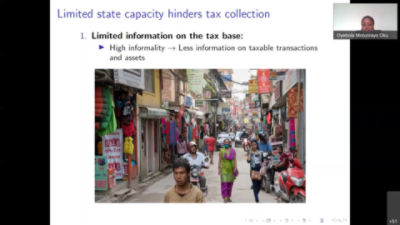Tax revenue in many low-income countries is inadequate for funding growth-promoting investments in public goods and human capital. Increasing tax revenue is particularly pressing given the volatility of natural resource revenues, growing debt distress, and financing needs for pandemic response. At the same time, various e-government initiatives are seeking to transform government functioning by improving service delivery and combatting corruption.
In this talk, World Bank economist Oyebola Okunogbe will describe the potential of technology to transform three core tax administration functions: identifying the tax base, reducing compliance costs, and monitoring compliance. She will also discuss factors that limit the effectiveness of tax digitalization in increasing tax revenues, such as a lack of complementary enforcement capacity.
Okunogbe will describe results from two studies that illustrate the opportunities and challenges of deploying technology in tax mobilization. The lessons from these studies are instructive for thinking about other types of technology used for taxation. The first paper shows that electronic tax filing in Tajikistan reduces the time firms spend on taxes by 40 percent, doubles tax payment, and reduces bribe payment among different subgroups of firms. The second paper finds that using identifying information from a newly developed electronic property database to alert Liberian property owners that their non-compliance has been detected quadruples the tax payment rate but only when the notice includes details on the penalties for non-compliance. The talk will conclude with a reflection on the operational implications of this work for the World Bank’s agenda on improving tax systems.



